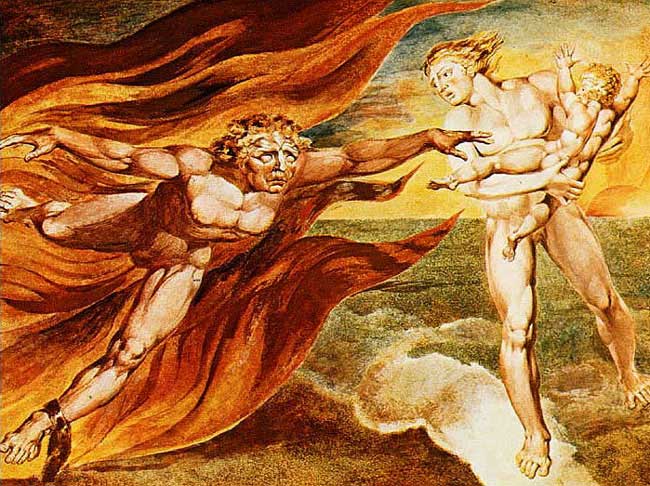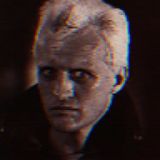The man who destroyed the heroes (and why he's repenting)
Why Alan Moore believes The Killing Joke turned heroes into angsty anti-heroes

Comics legend Chuck Dixon recently described Alan Moore's comics as "misery porn".
He's talking about Batman: The Killing Joke.
Moore's famous Batman story from back in the 80s was a turning point.
Up to then comics, even the famously gritty Batman, had been lighthearted, fun, silly kinds of stories.
Now we get a brutal, mean spirited sort of story with real psychos.
Says Moore:
I don’t think that the world needs that many brooding psychopathic avengers. I don’t know that we need any. It was a disappointment to me, how Watchmen was absorbed into the mainstream.
Like a meme-plague, once an object finds success on the market, a thousand copy-cats try to hop on the gravy train.
It had originally been meant as an indication of what people could do that was new. I’d originally thought that with works like Watchmen and Marvelman, I’d be able to say, “Look, this is what you can do with these stale old concepts. You can turn them on their heads. You can really wake them up. Don’t be so limited in your thinking. Use your imagination.
Can we blame Moore for not realizing that every innovation leads not to independent thought but... more imitation?
Instead, it became this massive stumbling block that comics can’t even really seem to get around to this day. They’ve lost a lot of their original innocence, and they can’t get that back. And, they’re stuck, it seems, in this kind of depressive ghetto of grimness and psychosis. I’m not too proud of being the author of that regrettable trend.
Amen to that.
I remember 90s comics. They were full of edgy grimdark nihilistic psychos.
Heroes, villains, didn't matter. They were all sad guys with big guns and a happy trigger finger.
Art is always a canary in the cultural coal-mine.
That's not to say that art causes social breakdown. It doesn't entirely reflect the world, either. There's a two-way cycle going on here.
"Monkey see, monkey do" isn't just a cheap cliche.
We humans imitate and then imitate the imitations. This gets quite nasty at times.
Step back from comics, from all entertainment, and look at what else has changed over the last 30 years.
Think of how many psychological disorders there are now.
Everything today is a medical problem.
It's almost to the point that we don't even talk about character traits anymore.
There's a whole movement in psychology to get rid of personality traits. The way people think and behave is shaped by unconscious situational factors, say these eggheads.
It doesn't make sense to talk about some people being kind or courageous when you can rig the situation to make the nicest person act cruel or the most heroic act like a coward.
And then there's all the weaponization of medicine.
He's not a bad guy... he's just got childhood trauma. PTSD. Messed-up brain chemistry.
The whole concept of a real bad guy... a villain capable of knowingly, willingly doing evil... is beyond the pale.
He's just misunderstood. He just lives by a different kind of morality. He's got a brain tumor that made him do it.
As for the good guys? We all know about the "flawed hero".
The hero with a flaw is as old as storytelling, going back to the Greek and the Shakespearean tragedy... even older than that if you count Gilgamesh.
But even these fallen heroes from the ancient days of yore lived in a world where Good and Evil still existed as reference points.
While poor Oedipus was doomed to meet his ugly fate, it was understood that man and fate alike existed within a higher order. The ways of the gods are beyond the ken of mortals, which serves as a warning that no hero is all-powerful. Yet what makes a hero into a hero and a villain into a villain are real, potent, and active forces just as sure as the will of the gods.
Oh but not today.
Today's angsty grimdark anti-heroes are no different from the angsty grimdark villains that they fight against. The hero is never that great, and even the villain is understandable.
Neither man is responsible for himself, his choices, or his actions.
It's only luck of the draw, the random forces of history and circumstance, that makes them into what they are.
Speaking morally, neither has any claim over the other.
Yes, the villain may kill and act selfishly, uncaring for the suffering he causes. Yes, the hero may find that his own interests align – perhaps only briefly – with the innocent townsfolk. He might be more discriminating in the blood he sheds.
But these are arbitrary traits. They work (if they work) because they tickle the emotional palettes of the consumers.
Good tickles means good guy. Bad tickles means bad guy.
Instead of White against Black, there's only shades of gray.
Repulsive.
The same degradation of art that infects storytelling is the same process that Kierkegaard called "leveling" the culture. Grinding down all the rough edges to make a bland, unremarkable gruel where everything is equal and nothing stands on its own uniqueness.
Make no mistake, when your heroes and villains are all broken people, you're sending a sign.
There is no difference between good and evil. There is no longer any sense of a worthy purpose. No order to make sense of our experiences.
But it sure does give a lot of power to the technocratic middle-managers who have all the solutions to your life in a new pill, doesn't it?
Like this article? – You'll get to read all the member-only posts if you join us.
Want to leave a comment? You'll need to join us inside the the private rogue planet community.
Members can discuss this article over at the rogue planet zone on SocialLair.

